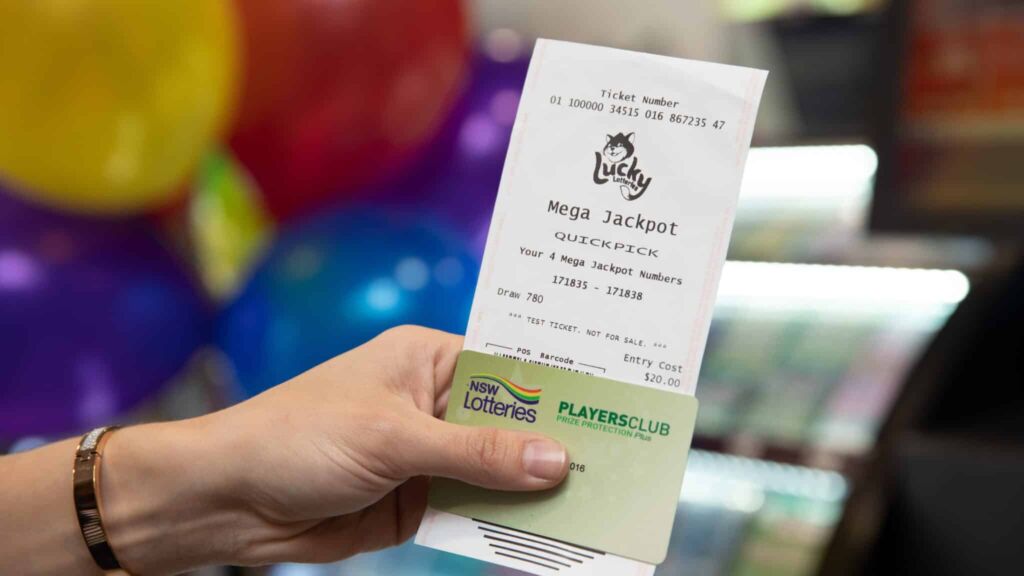Over the ages, lotteries have charmed people with the allure of potentially winning substantial prizes for what is often a modest sum. Their evolution from ancient epochs to today’s modern jackpots makes them a beloved form of entertainment globally. Whether someone engages casually or with fervent interest, grasping their history, rules, and techniques can significantly enhance one's experience. In this all-encompassing guide, we will explore lotteries' inception, provide detailed explanations of their rules, sprinkle in some engaging trivia, and equip both newcomers and seasoned participants with valuable insights.
The History of Lotteries
Spanning thousands of years, lotteries have woven themselves into the fabric of societies around the globe. Below are some notable milestones in the evolution of lotteries:
The Dawn of Lotteries in Ancient Times
The roots of lotteries lie deep within ancient cultures, where drawing lots served purposes like dividing assets, assigning land, or allocating individuals. In ancient China, for instance, lotteries supported grand-scale endeavors such as the building of the Great Wall. The Chinese 'Keno' system was documented as early as the Han Dynasty (circa 205-187 BC), believed to have financially backed governmental and military initiatives.
Likewise, ancient Greek and Roman civilizations utilized lotteries to designate festival and event prizes. Emperor Augustus even initiated a lottery to gather funds for Rome's urban renewal, awarding winners items including slaves, properties, or gold. The first recorded use of the term 'lottery' (derived from the Dutch 'loterij,' meaning 'to draw lots') surfaced in Europe during the 15th century, when local communities started organizing public lotteries to fund various needs.
European Lotteries: From Affairs of Royals to Servants of the Public
The appeal of lotteries transitioned to Europe in the 16th century, where they aided in financing public ventures by royals and nobility. The earliest recorded European lottery was held in the Netherlands in 1434. By the 16th century, they had become a vital means of funding in metropolitan areas like Florence, Venice, and Paris. Notably, in 1569, Queen Elizabeth I commissioned England's first national lottery to fund maritime enhancements for the nation’s navy.
In the following century, lotteries flourished even more as they became primary sources of revenue for governments and royalty, fueling infrastructural advances and military funding. By the 18th century, their focus had shifted towards public welfare and charities, allowing for even greater prevalence throughout the continent.
The Advent of Contemporary Lotteries in the USA
During the colonial era, lotteries found their way to America. In 1612, the inaugural U.S. lottery was held to provide financial assistance to the Virginia Company for the Jamestown settlement. This lottery contributed both to the protection and well-being of early American colonists.
The 18th and 19th centuries in America witnessed lotteries funding essential public services such as educational institutions, infrastructure, and military agendas. Some of the oldest educational institutions like Harvard, Yale, and Princeton emerged partly through lottery funds. Despite this, as the nation expanded, lotteries increasingly faced criticism for association with corruption and dishonest practices, resulting in numerous states banning them by the mid-19th century.
The Renaissance of Lotteries in Today's Epoch
A rebirth of lotteries in the United States occurred in the 1960s, with state-administered lotteries making a comeback. New Hampshire was the pioneer, launching its lottery in 1964. By the 1980s, the majority of states had adopted similar systems, turning lotteries into consistent fundraisers for educational sectors, infrastructural development, and public services.
Currently, lotteries thrive not only in the United States but across the globe, with wide-ranging international and local lotteries offering hefty jackpots and transformative rewards. Technological advancements, including digital lottery sales and mobile applications, have streamlined participation, enabling individuals worldwide to partake with ease.
The Rules of Lotteries
Before diving into any lottery game, familiarizing oneself with the general rules is essential. While specific nuances might differ between lotteries, the following is a broad overview of how lotteries generally function:
Basic Structure
Participants in lottery games typically buy a ticket featuring a sequence of numbers or symbols. Depending on the lottery's regulations, these numbers can either be self-selected or generated randomly by a system. The primary aim is to align these with numbers during an official draw to win a reward.
Prize tiers in lotteries can vary, typically beginning with smaller monetary rewards for matching fewer numbers, up to grander jackpots for perfectly matching all designated numbers. Some lotteries include bonus number categories that can further augment potential winnings.
Types of Lotteries
Various lottery types bring their own specific rules and structures, and some of the most favored include:
- Traditional Draw Games: Gamers pick a sequence of numbers, and winners are decided through a random number draw. Well-known examples are Powerball, Mega Millions, and EuroMillions.
- Instant Win or Scratch-Off Tickets: Players reveal instant rewards by scratching off a surface on the ticket. Although the odds may be less favorable, these tickets offer immediate outcomes.
- Raffles: Entrants obtain tickets for the potential of securing a particular prize, with winners determined through random selections.
- Multistate Lotteries: Games like Powerball, operating over multiple states or countries, have the benefit of heightened jackpots and increased player numbers.
How to Play: Step-by-Step Guide
Here is an uncomplicated, step-by-step method of understanding how to participate in most standard lottery games:
- Acquire a Ticket: The initial action requires purchasing a ticket from certified vendors or online sources. Players can opt to choose personal number selections or utilize a 'quick pick' for randomly determined numbers.
- Pick Your Numbers: Depending on the game, individuals will select sequences from a given range (e.g., 1-50). In some cases, supplementary numbers or distinct symbols might be incorporated to bolster winning probabilities.
- Anticipate the Draw: Following the ticket purchase, participants await the official drawing, usually occurring at specified intervals like once or twice weekly.
- Verify Your Numbers: Post-draw, players should compare their ticket numbers to the drawn numbers. Winners are those who successfully match the numbers, with prize values contingent on the number of matches and game specifics.
- Claim Your Prize: Congratulations to winners! Depending on the size of the reward, the claiming process might require an in-person visit or involve receiving a check or bank transfer.
Fun Facts About Lotteries
Lotteries not only have a long and storied past but also involve many interesting aspects and entertaining trivia:
- The Largest Prize Pool: The record lottery prize pot reached a phenomenal $1.586 billion, shared among three winners during Powerball’s 2016 drawing.
- Diversified Winners: Those who strike it big in lotteries hail from varied life backgrounds. Studies indicate the blend of sheer luck or deliberate strategy plays a major role in a win.
- Popularity of Instant Win Games: Scratch-off tickets enjoy immense popularity worldwide because of the immediate joy they offer to players who can instantly determine their luck.
- Historical Ticket Cost: The U.S. saw its first lottery tickets priced at merely $1, awarding a fraction of the expansive rewards seen in today’s multi-million-dollar games.
- Prizes Left Unredeemed: Each year sees countless lottery prizes go unclaimed, often due to winners not stepping up in time, leading to substantial amounts in unredeemed jackpots.
Strategies for Playing Lotteries
Though largely governed by luck, a few strategies exist to improve one's chances in lotteries:
- Consistent Participation Pays: Buying more tickets slightly increases the probability of winning, although the odds remain generally low and it's wise to play with moderation.
- Engage in Group Games: Forming or joining a pool allows players to enhance chances through collective ticket purchases, sharing any winnings among members.
- Select Less Common Numbers: Although the chance of hitting a win stays the same no matter which numbers you opt for, choosing numbers that aren't as frequently picked by others can potentially give you a larger slice of the prize since there will be fewer winners to split the jackpot with.
Conclusion: The Allure of Lotteries
For many across the globe, lotteries have not only served as a favored pastime but also symbolize a chance for achieving financial independence. Originating from ancient cultures and now prominent in the digital age, lotteries continue to capture attention and offer thrill to a wide array of players. Whether you're in it for pure enjoyment or aiming for the big wins, delving into the background, rules, and strategies of lotteries can significantly enhance your gameplay.



